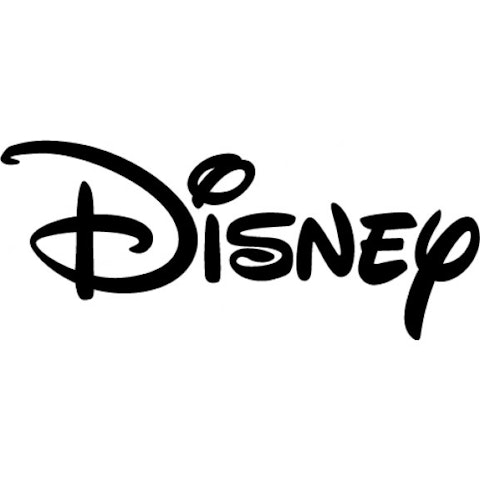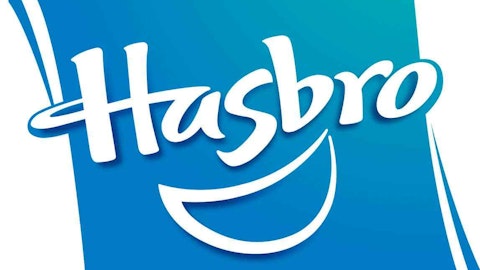Some say that The Walt Disney Company (NYSE:DIS) is a $115 million behemoth media company that already has its best years behind it. I’d say the best is yet to come. Even as it stands right now, the company is on a roll. Year to date, it is already up about 28%. But that is not even the half of it. The Walt Disney Company (NYSE:DIS) is what I would refer to as a “long-haul” stock for reasons I will outline below.
Heroic gains
Movie franchises nowadays are pulling in some serious cash with record-breaking releases. With this cash comes serious potential to drive up stock values.

The Walt Disney Company (NYSE:DIS) bought Marvel comics for $4 billion in 2009, which looking back, was a brilliant investment. Marvel represents a portfolio of popular American characters with heroic themes going back over 40 years. We are talking Captain America, Thor, X-men, Spider-man, Iron Man and a host of other readily acknowledged names with long lives in American public consciousness.
This truly is the stuff of childhood fantasies, made real. It’s easy to see why, since the acquisition, and with The Walt Disney Company (NYSE:DIS)’s marketing and cash muscle behind it, the stock has gone up 128% (25.6% annualized!) since its first Marvel release in 2008.
Iron Man is arguably the star of the show, and Robert Downey Jr. does a quite talented rendition of the billionaire industrialist Tony Stark. He even looks dead-on like him. The first Iron Man movie grossed $585 million (worldwide), the second, $623 million.
Now Robert Downey Jr. has worked his magic yet again, with a blowout Iron Man 3 release opening weekend total of $175 million. He just did a deal for two more movies. Can you say cha-ching?
The Avengers, its biggest and most ambitious Marvel film to date, incorporating all of its major characters, grossed $200 million in its opening weekend. That tally rises to over $1 billion in total earnings when accounting for international sales. The stock, predictably and immediately, got a nice bump.
I haven’t even mentioned the company’s other franchises (which it is also making movies and sequels for) and how insanely profitable they could be. Thor’s $449 million at the box office is nothing to sneeze at, and the company has plenty more in its lineup, including Thor 2 coming out later this year.
Captain America, ironically, does less well in the United States versus overseas. The first movie made $368 million, not as good as Iron Man or Thor but the company almost tripled its investment of $140 million.
Bottom line, as long as the company sticks to its current formula, and it looks like it is holding pretty steady, this stock has nowhere to go but up.
Franchise wars
Direct competitors Time Warner Inc (NYSE:TWX) and Twenty-First Century Fox Inc (NASDAQ:FOXA) also have a few aces up their sleeves in the movie business.
Time Warner Inc (NYSE:TWX) has had a relatively good last few years where movie franchises are concerned. It actually owns DC Comics, which includes both Batman and Superman. To say its most recent incarnation of the Batman franchise has been a tremendous success would almost be an understatement. All three movies, directed by Christopher Nolan, have returned over $1 billion at the box office combined.
Its latest Superman flick did fairly well and it is rumored to be a making a Batman/Superman movie, a bit like Marvel’s Avengers. If it is anything as good as the Avengers, the year of its release will be a great year for Time Warner Inc (NYSE:TWX).
Time Warner Inc (NYSE:TWX)’s biggest problem, however, seems to be holding onto good talent. Since it lost Christopher Nolan as director, not even a reported $50 million could keep Christian Bale from turning down an upcoming Batman movie. He is to be replaced by Ben Afleck, whom is a controversial choice. This could present a serious problem down the line as fans like to see certain actors in certain roles, and that can hit the company at the box office.
In the case of Twenty-First Century Fox Inc (NASDAQ:FOXA), it has got a (albeit smaller) blockbuster lineup of its own to look forward to. In 2009, it broke the record set by Titanic for highest grossing movie with $2.7 billion in global revenue for Avatar. Now it is looking release two more sequels starting in 2016.
Then there is the question of the long-awaited and much talked about sequels to Independence Day, which the company is also rumored to be releasing, starting around 2016. It was the highest-grossing movie of 1996, pulling in over $800 million at the box office. But can it recapture that fire? It’s been over 19 years since the release and viewers may or may not take to it next time around. So far it has one sure-fire hit franchise, and another “possible” hit.
In comparison to The Walt Disney Company (NYSE:DIS)’s strong lineup and ability to keep talent, I can’t say either of these two companies would represent a better investment.
A surprising addition
I’ve got two words for you: Star Wars. That’s it. End of story (OK not quite). More like Lucasfilm, and all of its associated intellectual properties, including Indiana Jones, the entire Star Wars franchise, Lucasarts gaming studio, toys and licensing that The Walt Disney Company (NYSE:DIS) acquired in 2013.
I’m sure you’ve heard that George Lucas himself just announced the making of three new Star Wars sequels, the first starting in 2015. Not only that, but movie makers are almost certainly bringing back most of the old cast from the original trilogy. Disney has followed up one brilliant move with another and this news means possibly record-setting box office totals coming up in 2015 (when it is scheduled to also release Avengers 2!).
I can’t say enough good things about Disney. Simply put, Disney is a must-have stock. Buy it and hold onto it. Tightly. You’ll be glad you did.
The article Disney Is Poised to Make Some Huge Gains originally appeared on Fool.com and is written by Marcus Tisdale.
Marcus Tisdale has no position in any stocks mentioned. The Motley Fool recommends Walt Disney. The Motley Fool owns shares of Walt Disney.
Copyright © 1995 – 2013 The Motley Fool, LLC. All rights reserved. The Motley Fool has a disclosure policy.




